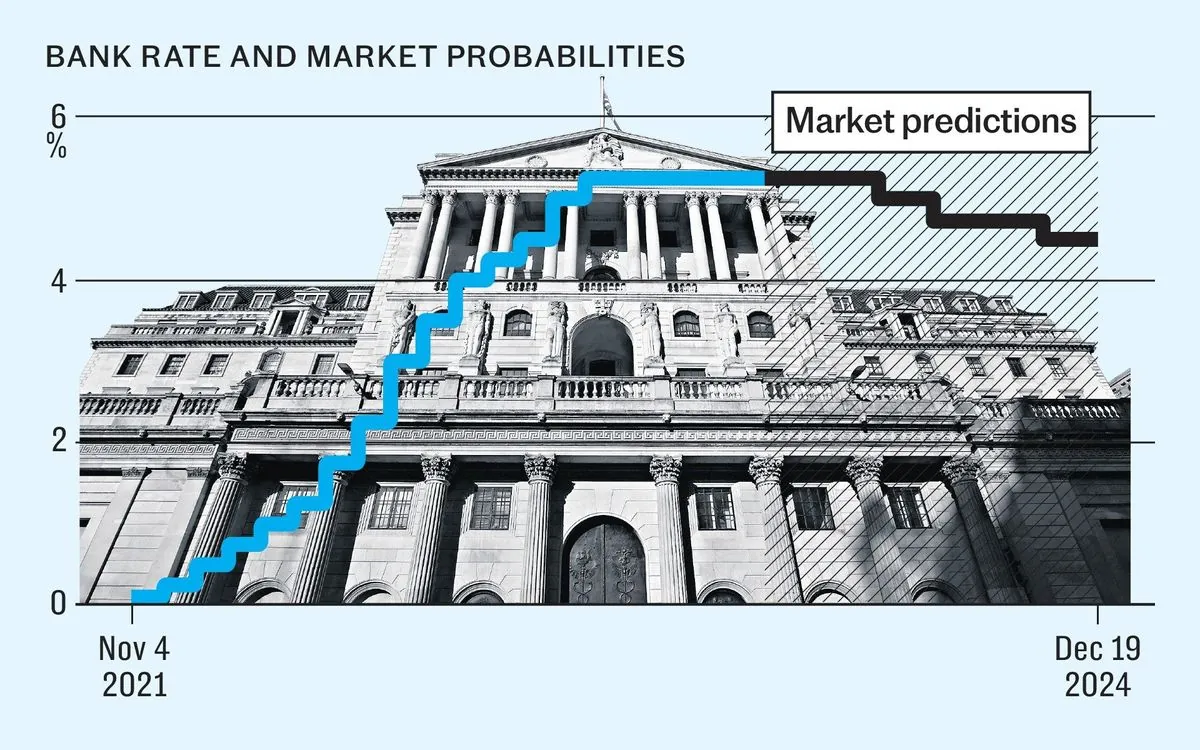The Bank of England recently made a significant move by reducing interest rates for the first time in four years, lowering them from 5.25% to 5% in early August 2024. This decision has sparked discussions about potential further cuts and their implications for the UK economy.
While many anticipate the Monetary Policy Committee (MPC) to maintain current rates at their September 19 meeting, some economists predict a reduction to 4.75% by year-end. Such a decrease could positively impact economic growth and debt servicing costs for consumers, businesses, and the government.
Lower interest rates typically benefit mortgage holders and indebted companies. They also tend to reduce gilt yields, affecting the government's borrowing costs. The UK government's debt service bill for 2024-2025 is estimated at £89 billion, according to the Office for Budget Responsibility (OBR).
However, the path forward for interest rates remains uncertain. The UK's inflation journey has been tumultuous, reaching a 40-year high of 11.1% in autumn 2022 due to various factors, including supply chain disruptions, quantitative easing, and the energy price spike following Russia's invasion of Ukraine. While inflation briefly hit the 2% target in May and June 2024, it rose to 2.2% in July.
Several factors could influence future inflation trends:
- Energy costs: UK households face a 10% increase in energy bills from October 2024.
- Geopolitical risks: Ongoing conflicts and tensions, particularly in Ukraine and the Red Sea, affect global energy markets.
- OPEC's influence: The oil exporters' cartel, controlling about 40% of global crude production, continues to impact oil prices.
- Wage pressures: Recent inflation-busting pay awards and potential minimum wage increases could drive up company costs.
"We remain vigilant to inflationary pressures while balancing the need for economic growth. Our decisions will continue to be data-driven and responsive to evolving economic conditions."
The MPC's decision-making process is further complicated by the lag in monetary policy effects, as noted by economist Milton Friedman. Rate cuts in the coming months, while potentially boosting sentiment, may not immediately impact the economy or inflation risks.
Globally, central banks are reassessing their rate cut strategies. The European Central Bank is expected to lower rates on September 12, while the Federal Reserve may opt for a smaller cut than initially anticipated on September 18.
As the Bank of England navigates these complex economic waters, the possibility of maintaining current rates or even increasing them in the future cannot be ruled out. The coming months will be crucial in determining the trajectory of UK monetary policy and its impact on the broader economy.
